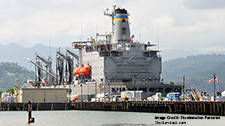Europe, post the AUKUS

Jagannath P. Panda and Niklas Swanström
Introduction
Regardless of its challenges to transatlantic ties, AUKUS has opened a window of opportunity for Indo-Pacific countries India and Japan, and the EU, to deepen their partnerships.
More than the AUKUS (Australia-United Kingdom-United States) pact itself, it is the manner of the announcement and the reaction to this trilateral security agreement that will shape its legacy. The inking of the pact has not only created a stir in the strategic community, but also caused a rift between the many democratic partner states of the parties involved. The signing of AUKUS took diplomats, academics, politicians, and defence experts all by surprise—more so in Europe.
The full article is available on The Sunday Guardian’s website.
Related Publications
-
Needed, a Framework to Protect Undersea Cables
In the data-driven world we live in, submarine cables are the arteries that connect nation-states and their people in literally every human activity, including trade, commerce, entertainment, and social interactions. […]
-
AUKUS: Resetting European Thinking on Indo-Pacific?
This special publication brings together a number of experts from Europe and Asia to discuss the implications of AUKUS for Europe. The AUKUS is a critical geopolitical development. It has […]
-
Not Drawing a Parallel. Ukraine and Taiwan: An Indian Perspective
Russia’s war against Ukraine has not only had economic, diplomatic, and geopolitical repercussions, but also exaggerated the fear of accelerated conflicts in the Indo-Pacific, a region with several unresolved conflicts […]
-
EU-Thailand FTA Negotiations: IUU Fishing and Human Rights Remain Obstacles
Thailand’s fishing industry, which at its height saw as many as 200,000 migrant workers from neighboring Laos, Myanmar, and Cambodia caught in a brutal system of abuse, withered global criticism […]
-
India-Japan-Philippines: A Strategic Maritime Trilateral or More?
Regional states like India, Japan, and the Philippines have been seeking cooperative solutions with other middle powers that can both counter the Chinese influence and fulfill other economic as well […]




